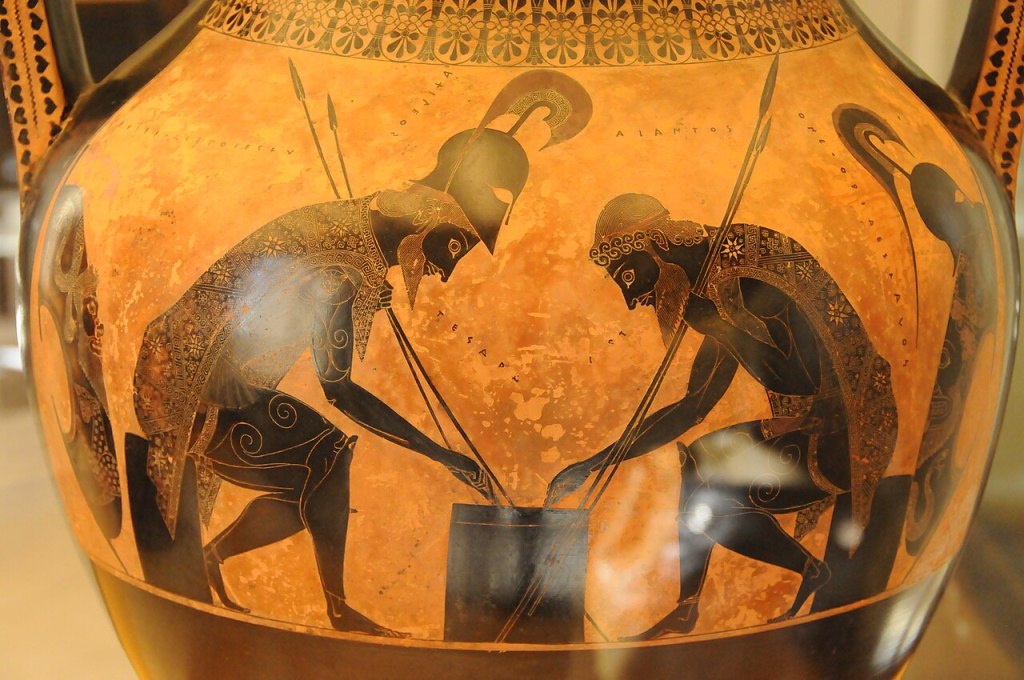Ajax
Ajax was a towering titan, a warrior whose strength and courage were legendary. Son of King Telamon and half-brother to Teucer, he cast a long shadow on the battlefield. Homer’s Iliad portrays him as a force to be reckoned with – a fearless fighter who stood toe-to-toe with Hector, the Trojan prince, in epic duels.

Parents: Telamon and Periboea
Siblings: Teucer
Trojan War
Beneath that imposing physique crackled a tactical mind. Homer’s Iliad highlights his combat intelligence – a warrior who didn’t just rely on brute force, but also on cunning strategy. He wielded a massive shield, a seven-layer hide and bronze behemoth that became his calling card. Remarkably, throughout the Trojan War, Ajax remained unscathed, a testament to his defensive brilliance. Unlike other heroes who relied on divine intervention, Ajax carved his own path, the sole major character on either side to achieve such a feat without significant godly aid.
He wasn’t a glory-hound charging into battle. Ajax was the ultimate shield, the bulwark that protected the Greek camp, their ships, and even the body of Patroclus. When the Trojans surged forward, Ajax was often the last man standing, the unyielding wall that allowed his fellow Greeks to regroup and retreat in safety. His focus wasn’t on personal glory, but on the collective survival of his army. In a war fueled by egos and personal vendettas, Ajax stood apart – a symbol of unwavering defense and strategic brilliance.
Death
Achilles’ fall cast a long shadow, and the spoils of war ignited a bitter feud. Ajax, the mighty warrior, and Odysseus, the cunning strategist, both craved Achilles’ god-forged armor, a prize worthy of heroes. Ajax, with his unmatched strength and unwavering defense, argued that his battlefield prowess deserved the honor. He was the one who’d recovered Achilles’ body under a hail of Trojan arrows, the shield that protected not just himself but the Greek hope.

Odysseus, however, was a master of words. His eloquent plea, aided by a subtle nudge from Athena, the goddess of wisdom, swayed the council. Ajax, consumed by rage and a sense of injustice, saw his worth diminished. Grief and fury morphed into madness. Believing the Greek camp, his own comrades, to be his enemies through a cruel trick of Athena, Ajax lashed out, slaughtering their livestock in a fit of delusion.

Shame and despair overwhelmed him. The weight of dishonor – losing the armor and the perceived betrayal – proved too much to bear. In a tragic end, Ajax took his own life, falling on his sword. His death wasn’t on the battlefield, but a casualty of war nonetheless. Ajax, the nearly invincible warrior, fell not to Trojan might, but to the cruel twists of fate and the sting of a perceived insult. His story echoed through the ages, a cautionary tale of how even the greatest heroes can be brought low by the complexities of war and the fickle nature of glory.
